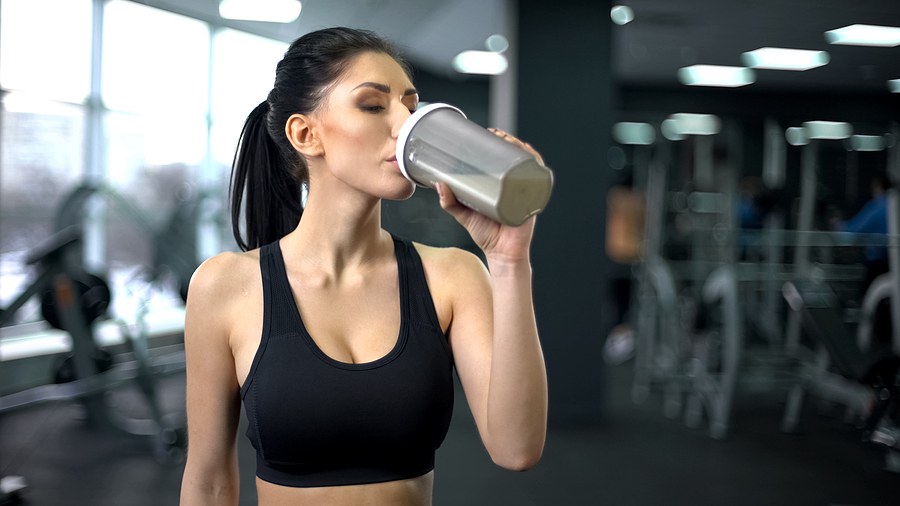
Different terms have probably been tossed around in conversations if you are new to the workout and nutrition world. You know that what you consume before, during, and after can make or break your workout. One supplement that probably comes up pretty consistently is BCAAs (Branched Chain Amino Acids). You will find there are many different options when it comes to BCAA supplements, but which one should you choose?
If you aren’t familiar with BCAAs, there are some benefits to using it in your health regimen. Let’s take a moment to dive a little deeper into what BCAAs are, how they benefits you, and the truth about animal cruelty in the industry.
What are BCAAs (Branched Chain Amino Acids)?
BCAA is short for branched-chain amino acids, which are a group of three essential amino acids – Leucine, Isoleucine, and Valine. These supplements, collectively known as BCAAs, are commonly taken to enhance the overall workout experience, boost muscle growth, and protect muscles from soreness the next day.
Amino acids are what the body uses to make protein. BCAAs make up a large chunk of the body’s amino acid pool and represent about 35% to 40% of all amino acids found in your body (14% to 18% is found in your muscles). BCAAs are broken down in the muscles, unlike other amino acids that are broken down in the liver.
Advantages of Using BCAA in the Gym
If you are considering using BCAAs in the gym, it is important to know what the advantages of doing so are. There is extensive clinical research that backs up these advantages.
BCAAs Can Limit Your Fatigue
Research that has been conducted suggests that BCAAs may reduce the amount of fatigue you feel after exercising. Fatigue can be caused by many different factors during a workout, namely the intensity, duration, and personal fitness levels—BCAAs help restore the levels of tryptophan in your brain. Tryptophan is a chemical that converts to serotonin and may cause fatigue during physical activity. Participants in studies using BCAA have shown improved mental focus during exercising.
BCAAs May Help Burn Fat
Thanks to the existence of Leucine in BCAAs, taking the supplement helps with weight loss. Experts believe that using BCAAs as a factor in weight loss may reduce excess fat and help normalize visceral fat. When used in conjunction with glutamine, it has been shown to help overweight patients on a hypocaloric diet.
BCAAs Can Reduce Your Muscle Soreness
BCAAs can reduce your DOMS, which is short for Delayed Onset Muscle soreness, typically felt after a workout. Research published in the Journal of International Society of Sports Nutrition found that consuming the right amounts of BCAAs may help with deterring DOMS. The research suggested that supplementation may help with decreasing muscle soreness after strenuous workouts.
BCAAs Reinforce the Immune System
When working out repetitively, it can cause fatigue. The higher the intensity, the higher the onset of tiredness, leading to immune suppression in long-term scenarios. Athletes who supplement with BCAAs have been shown to have an improved immune response. BCAAs can also be used as a fuel source by immune cells in the gut.
The Best Way to Use BCAAs
You can’t constantly carry around foods rich in Amino Acids, which is why most people choose to use supplements instead. BCAA supplements are easier to take, just ask an athlete or trainer. Taking BCAA supplements is also better on the wallet, especially if you are looking for a workout nutrition companion that is cost efficient.
The two most popular methods of consumption for BCAAs are orally by tablet or through powder. Powders are a little more versatile – allowing for mixing with water and even sports drinks. The benefit of using the powder with water is the absorption is quicker than taking a supplement tablet. Powders that have been mixed with a sports isolate drink have been known to flood the muscles with the Amino benefits a lot quicker.
BCAAs and Animal Cruelty
For years, the BCAA supplements found on the market were only made with animal-based Amino Acids. Animal-based amino acids are cheaper to process, and the production process was also easier and a lot cheaper for companies to implement. These BCAAs are cultivated from keratin, a protein found in hair, skin, and nails.
During the production process, keratin is extracted from the feathers and hair of the animals. Extracting these amino acids from these mediums must be done through a harsh process, which is acid-based. The technique is called hydrolysis, which means to dissolve it into its smaller molecular parts, which include the BCAAs.
Changes to Be Made
There are changes to be made when looking at the BCAA and animal cruelty issues. Manufacturers have the availability to convert to animal-free BCAA processes that are still cost-efficient (just not as cost-efficient as animal-based) but do not because of the conversion process. More people want plant-based BCAAs and the industry is working hard to help accommodate it. There are still both types of BCAAs available on the market – both offering the same benefits for after those intense workouts.
Is Your BCAA Plant-Based or Animal-Based?
“Vegan Certified” is the only legal way to know that the BCAA is Vegan, including in the supply chain. Many manufacturers will put “Vegan Friendly” which is not a regulated term, and no guarantee that there is no animal cruelty in the supply chain.
If you want to use only plant-based BCAA and other workout products, you can often find them sold with like-minded products. Make sure you stay true to yourself and your workout – If you need a company that can help you with all your preworkout supplements (including BCAAs), check out Gym Molly. Gym Molly is a company that is devoted to ensuring Certified Vegan ingredients across their product line, while still facilitating the needs of its customers.
Erik Jackson has been a senior editor at Health News Tribune for three years. Fluent in French and proficient in Spanish and Arabic, he focuses on diseases and conditions and the newest trends in medicine.





